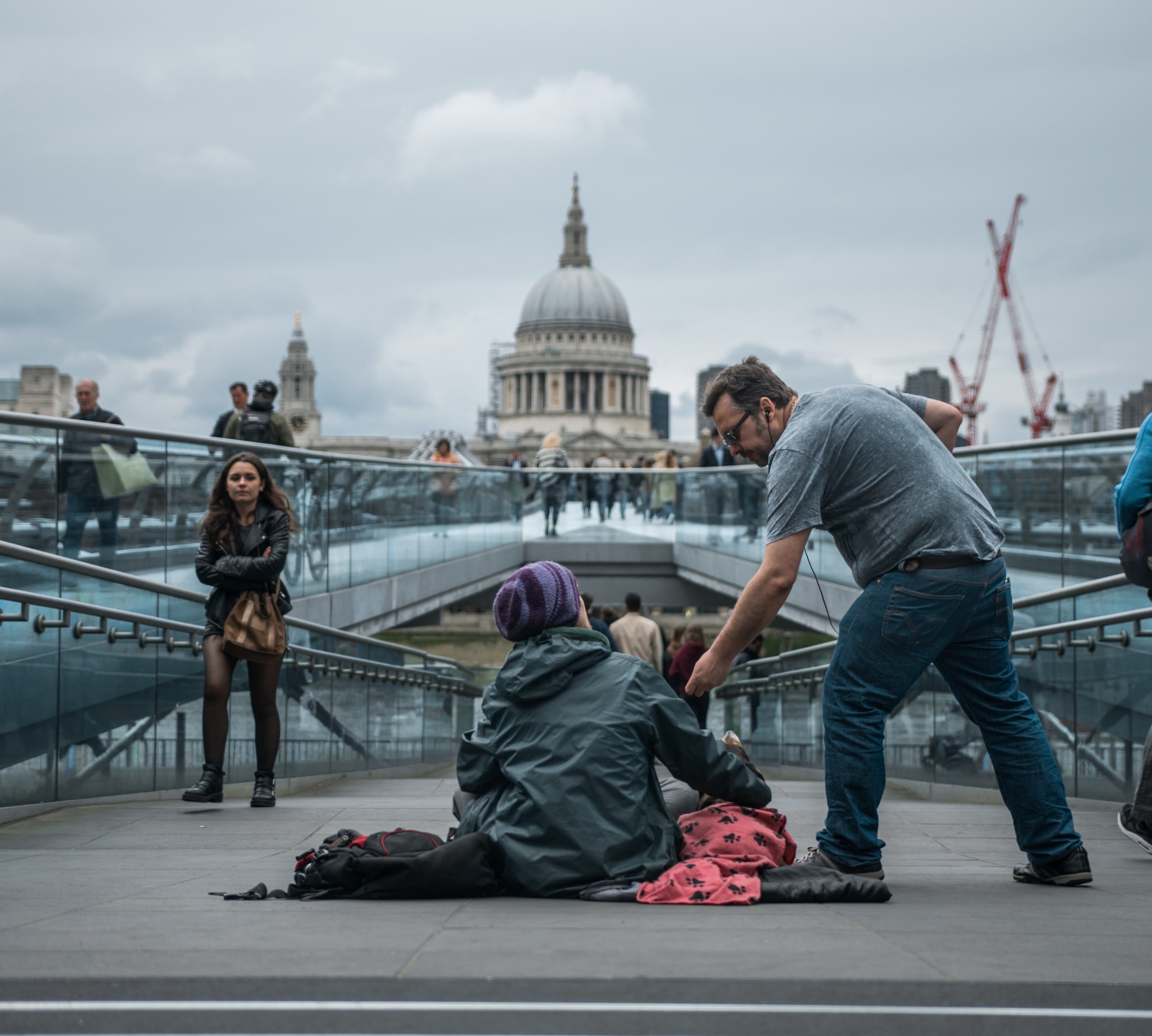“I had to make the decision to die on the job or move away quietly to save my health.”
That was the choice facing one nurse repeatedly assigned to treating Covid-19 patients – a task her white colleagues were often spared – as the pandemic took hold in Britain.
She asked her employer whether staff could be rotated, so that no one team member was always exposed to the virus.
But her manager instead threatened to stop booking her for in work, knowing she was on an insecure agency contract.
Her experience was similar to that of a migrant healthcare worker who, unlike her British colleagues, was tasked with cleaning the bodies of deceased Covid-19 patients.
While afraid her employer was putting her at heightened risk, she felt unable to challenge the situation as her immigration status means she cannot fall back on government support if she lost her job.
These healthcare staff are two of more than 1,200 black and minority ethnicity (BME) workers anonymously surveyed earlier this year by the Trade Union Congress (TUC) in a study examining workplace discrimination amid the pandemic.
It found that about one in six BME workers felt they had been put at more risk of exposure to coronavirus because of their ethnic background – many reporting being forced to do frontline work that white colleagues had refused to do.
Among the factors the TUC said was compounding this heightened risk was the government’s no recourse to public funds (NRPF) policy – part of the hostile environment immigration measures introduced in 2012 by then home secretary Theresa May.
NRPF prevents people accessing social security payments, such as Universal Credit or housing benefit, based on their immigration status.
This policy – and its acute impact on migrant women workers, many of whom work in our hospitals and care homes – is the focus of a new EachOther video featuring the TUC’s women’s and equalities officer Sian Elliot.
“Without [access to these social security payments], migrant women workers are more vulnerable to exploitation, unfair treatment, discrimination and abuse,” the TUC’s Elliot says.
“Because employers know no work means no income, with nowhere to go for help.”
The purgatory that can be imposed on people with NRPF is illustrated in the case of Carla, a domestic worker in London, who came to the UK from Uruguay on a tourist visa in 2017 and overstayed.
For the past year Carla has worked 15 hour days, at £3.55 an hour, without breaks or holiday, for a member of her extended family who she lives with.
Suffering joint and back pains, she sought help from the Latin American Women’s Rights Service (LAWRS) to arrange an appointment with a doctor.
But she fears registering with a GP, for which she must provide her address, will lead to immigration authorities finding and deporting her.
LAWRS advised Carla that, as a victim of exploitation, she could report her employer and seek support from another organisation.
However, afraid of losing her job with no government support to fall back on, she feels she has no alternative but to continue.

Credit: Caio Christofoli / Pexels
According to LAWRS, the NRPF policy is also leaving migrants trapped in abusive relationships with few places to turn.
Among them is Andrea, who also came to the UK on a tourist visa to be with her partner, who is British, during lockdown.
They intended to settle down and start a family, but her partner was unable to sponsor her for a spouse visa as he did not meet the minimum income requirement of £18,600 and he could not find another job amid the pandemic.
In May this year, after enduring a series of incidents of physical and sexual violence, Andrea contacted the police and the courts issued her a 28-day Domestic Violence Protection Order (DVPO).
Finding emergency accommodation became a challenging process, LAWRS said.
The police paid for the first three days of emergency accommodation, then Andrea’s consulate paid for 12 days.
When she was about to become homeless again, the local authority agreed to pay for her accommodation for no longer than a week, arguing that they are not responsible since she has no access to public funds.
Amid the pandemic, Andrea has been left at risk of homelessness several times while her mental health has “deteriorated significantly”.
A charity in Devon found a donor for her case and her emergency accommodation was covered until the day her DVPO expired.
Amid a lack of alternatives, Andrea has since returned to her partner. Her LAWRS caseworker is highly concerned about the risk of her experiencing further abuse.
The aim of the government’s hostile environment policy is to encourage undocumented migrants to leave the UK voluntarily by making it harder for them to get jobs, rent property, open bank accounts, and access welfare and other vital public services.
However the policy appears to have had little success on its own terms, according to the Institute of Public Policy Research (IPPR), with the number of people leaving the country independently of Home Office involvement “falling considerably” since most policies were introduced in 2014.
Around 12,000 more people without immigration status were independently voluntarily leaving the UK in 2012 than they were in 2018, according to government data analysed by the IPPR.
Furthermore, the think tank found the policy “has penetrated right across society and fostered racist practices by requiring ordinary, untrained citizens to police the measures”.

An eight-year-old British boy and his migrant mum were unlawfully made street homeless by a Home Office policy which denies them social security payments, a court ruled in May. Credit: Unsplash
In May, an eight-year-old British boy and his migrant mum who were made street homeless won a legal challenge against the Home Office’s NRPF policy.
High Court judges ruled that the policy failed to give effect to the Home Secretary’s duty not to impose, or to lift, the NRPF condition where people would imminently suffer inhuman or degrading treatment without recourse to public funds. To that extent, parts of the NRPF policy were unlawful.
Article 3 of the Convention on Human Rights protects people from torture and inhuman and degrading treatment or punishment. To that extent, parts of the NRPF policy were unlawful.
The decision required the Home Office to make clear to its case workers that they must not impose, or must lift, NRPF conditions on people who are destitute or will imminently become destitute without state support.
Charities welcomed the ruling but also fear the NRPF regime “will still largely remain” intact.
Amid the looming jobs crisis triggered by the economic disruption of the pandemic, the TUC’s Sian Elliot told EachOther that the case for scrapping the NRPF policy altogether was becoming “more urgent” as the job market shrinks – leaving migrant workers with even fewer alternatives.
“How anybody in our society can think this is acceptable and think we do not have a moral duty [to address it] is disgusting,” she said.
A Home Office spokesperson said: “The government has acted decisively to ensure that everyone is supported through this crisis, including those who have no recourse to public funds.
“Many of the wide-ranging coronavirus measures we have put in place are not considered public funds, and individuals who have a right to be in the UK on account of their family life or other human rights reasons can apply to have the NRPF condition lifted if their financial circumstances change.”



